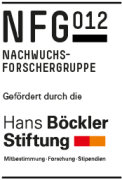The Cooperation between Social Movement Organizations and Trade Unions in the European Anti-Austerity Protests
An Interaction between a Transnational Network and National Opportunity Structures
The cooperation between trade unions and social movement organizations is not a new phenomenon (see also PhD project Ulf Teichmann). Nonetheless, it is little-researched when it comes to a cross-disciplinary perspective between industrial relations and social movement research, especially on the transnational level (see also PhD projects Johanna Lauber and Giulia Gortanutti).
A transnational cooperation between these two actors can be observed in the protests and campaigns against the austerity policy of the European Union. In this wave of protests – which started in 2010 and took place not only in countries affected by the debt crisis but was also sustained by solidarity campaigns in many other European member states – the transnational network called Alter Summit emerged in 2012/2013. This network will be the underlying case study of this project.
The current situation in Europe makes this anti-austerity network especially worth exploring. The results of the Greek elections in 2015 can be seen as a starting point for change in the countries affected by the austerity policy, as several elections have been held in 2015 (Portugal in October 2015, Spain in December 2015). For the anti-austerity campaigners these elections are an opportunity to revive their political claims encouraged by the rise of parties like SYRIZA and PODEMOS.
The central aim of this PhD project will be to reconstruct how this transitional cooperation between different actors like trade unions and social movement organizations has reacted to this particular opportunity structure and to analyze the development of the network Alter Summit. The purpose is to identify central mechanisms of action and factors which have been influencing the structure of the network, including strategic choices the anti-austerity actors made.
The project particularly offers the chance to explore the interaction between a transnational network and national opportunity structures. Therefore, the focus of the research lies on anti-austerity actors in Spain and Greece, but also implies Alter Summit members from other countries like Germany. The methodological design involves a web-based network analysis and interviews with coordinators as well as national or local members of the cooperation in order to reconstruct the relation between persons, organizations and events in this network. It is intended to use a combined concept of analyses from the social movement research and industrial relations. Furthermore, collective identities, path dependency as well as transnational and national opportunity structures are taken into consideration.


